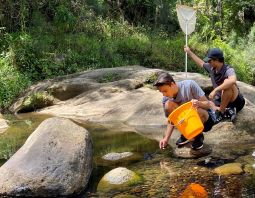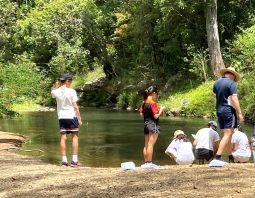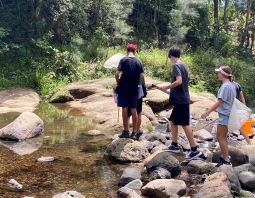


Students will explore a local creek or water sample to identify the water bugs (macroinvertebrates) living there and how they indicate water health in their catchment. The use of scientific equipment, such as magnifying glasses, microscopes and a "Magic Eye," allows students to observe them up close and identify the diverse range of organisms that call a freshwater environment home. They record their observations, describe the structural features they see and recognise how these aid survival. Students collaboratively determine the health of the waterway, discuss human behaviours which can impact water quality and propose actions they can take maintain its health.
Key Concepts: Water quality, freshwater environment, invertebrates, physical features, basic needs, habitat, classification
Curriculum Links